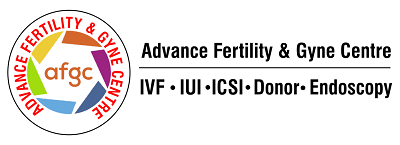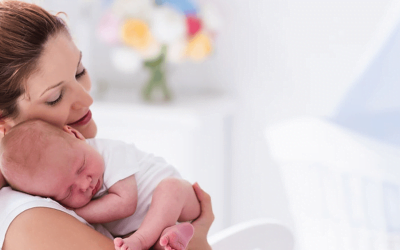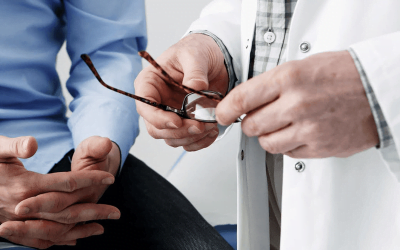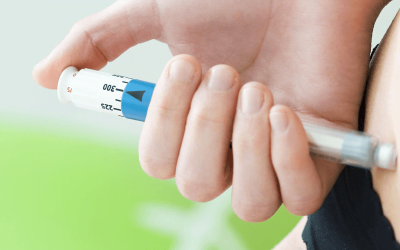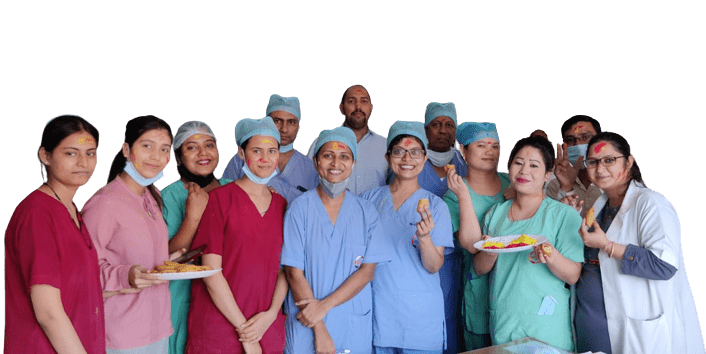Frequently Asked Questions

An Overview
In simple words infertility is defined as the inability to conceive. And this is the reason, it requires thorough diagnosis of both the partners. Once, this malady is diagnosed, there is every possibility that it could be treated successfully.
However, there are other factors as well like age, general health etc., that may affect the success of treatment.
At the same time, with technological advancements in the field of surgery and/or assisted reproductive technologies (ART), such as in vitro fertilization (IVF), majority of infertility cases can be treated successfully.
We have a team of internationally trained and experienced staff who are well versed with latest processes and technology
- In order to ensure comprehensive patient care, we have solely dedicated team for infertility management
- We strongly believe that this line of treatment requires informed decision making on part of patients
- We pay special attention in educating patients so that they can take right decision, at right time
- We do not follow protocols blindly & offer personalized individual attention to each and every patient. Read More
Myth: If You Adopt A Baby You’ll Get Pregnant!
Fact: This is one of the most painful myths for couples to hear. First it suggests that adoption is only a means to an end, not an happy and successful end in itself. Second, it is simply not true. Studies reveal that the rate for achieving pregnancy after adopting is the same as for those who do not adopt. Read More
Female fertility declines with age and it is always advisable to take precautions for couples who are planning to become pregnant. Some of the major precautions that should be taken are as follows :
- Women who are planning for pregnancy should avoid liquor Avoid smoking
- Get into shape and achieve desired body mass index
- Take healthy diet (low carbohydrates, high proteins and minerals)
- Drink plenty of water (up to 2-3 litres) Read More
The net can be both a boon and a bane. With no monitoring authority to govern clinics, everyone is claiming to be the best. Most gynaecologists now profess to be infertility and IVF experts. You must be sure that.
There is established consistent successes from the doctor’s treatment. This can be easily got from word of mouth publicity. You can even ask the clinic to give references of patients ( not just one or two)
The doctor is well trained in this field. This usually involves 2 years of vigorous training. It is not enough to be a observer in a center for 2 weeks. Read More
About of 10% of women around 45 yr who are still menstruating regularly, may conceive naturally. However, there are high chances of miscarriage and congenital abnormality in the baby.
Pregnancy test can be done after 14 days of IVF. In IVF, a blood test called Serum Beta HCG is done to confirm the pregnancy.
IVF is In-vitro fertilization, which is commonly known as test tube baby in layman language. It means fertilization of the egg and sperm outside the body in the lab and transferring them back into the uterus. Earlier the fertilization was done in the test tubes , but now a days the fertilization is done in the dishes called petri-dish specially designed for IVF.
Yes, you can do cycling in the first half of the IUI cycle, but later on in the second half when fertilization and implantation is happening it is best to do light to moderate exercise.
You can do a home pregnancy test after 14 days of IUI.
Yes it is possible to conceive with a bulky uterus however, we need to be sure whether it is because of Adenomyosis or Fibroid uterus. Also endometrial thickness needs to be up to the mark.
There are various opinions about it. Many doctors/centres advise to wait for 2-3 months. However at our centre we do advocate back to back cycles.
We have many couple who come from abroad on a limited medical visa duration, who cannot wait for such long duration to start next cycle and we have found that it does not effect the IVF pregnancy rates. On the contrary it may slightly improve result as the body may be in a primed situation.
IVF with Donor egg can be done at any age. However for women it is not advisable to go for these treatment beyond 55 yrs because of the risk of advanced age pregnancy, like hypertension, diabetes, and prematurity.
Yes, the tubes have no role in IVF or donor IVF treatment.
If an IVF cycle is negative and the patient gets her period because of failure to implantation, the patient can be fertile right from the next cycle,. Many couple undergo IVF do try for natural conception as well in subsequent cycles. However the tubes must be patent and the egg and the sperm must be of the reasonable quality.
There is no added risk to the mother when PGD or PGS is performed. This procedure is performed on the embryo. The mother is exposed to the risk of IVF treatment, which includes side effects of drugs, anesthesia risk and risk or needle injury to internal organs. However these risk are nearly small about 1-2%.
You must stay well hydrated, drink 7-8 glasses of water. You must eat healthy food which includes fresh fruit, vegetables, yogurt and milk. Avoid white carbs like confectioneries. Completely stop smoking and alcohol. You must have moderate amount of exercise which includes about 30-40 min of brisk walking. You can carry on with routine activities but not over exert your self.
Asthenozoospermia is abnormal motility and Teratozoospermia is abnormal morphology of the sperms. The chances of congenital anomaly is 4% ( back ground risk 2%). The chance that the male baby will have the same problem is 10-15%.
If you get pregnant after IUI which happens in about 20-30 % cases, 50% may have symptoms and 50% may not have symptoms. Symptoms include nausea, vomitting, mild lower abdomen discomfort weakness and light headed-ness.
Baby stays in the test tube/ petri dish/ laboratory for 3-5 days and then implanted into the uterus where it grows further.
Studies have shown that there is no increased risk of abnormality in Advanced Fertility and Gynaecology Centre conceived babies compared to those conceived naturally.
The procedure demands no special precautions, but avoid strenous activity. We advise the patients to be mentally & physically relaxed as much as possible. You can return to work if you wish, but fist prefer to have a few days rest.
You can go through IVF as many times as you wish, but we advise up to five cycles at the most.
IVF is the option, which has highest success rate and is also the most expensive. But, it is not “end of the road”. Many women have conceived naturally or with intrauterine insemination, even after IVF. However, for those with blocked tubes & very poor sperm counts, it is only option.
IVF is not as expensive as percieved in general. Generally, the cost of IVF cycle depends upon the dose of drugs that would be needed for ovarian stimulation. It is only as expensive as perhaps gall stone removal or removal of uterus surgery.
A patient undergoing IVF does not require admission. However, one should visit the center 3-5 times during monitoring cycle. On the day of egg collection, the patient would need to fast for 6 hours & come to clinic (the procedure takes about half an hour). Patients can go home after the effect of anaesthesia weans off which takes about 2-3 hours. The next scheduled visit is after 2-3 days for the embryo transfer, which again takes about half an hour and patients are free to go home after resting for one hour.
Yes, usually multiple gonadotropins injections are given for follicle growth and maturation. By the end of stimulation we get about 6-10 mature follicles usually.
Stress is usually overcome by health diet, exercise, plenty of water, positive thinking, yoga and meditation. You must avoid eating heavy foods, smoking and consuming alcohol.
Embryo transfer is usually a smooth process it does not require dilatation and anesthesia. However in apprehensive patient’s and patient’s with tight cervix (entry to the uterus) the procedure may be done under anesthesia.
The fertility of such a woman will depend on her age, duration of trying to conceive and associated factors. It the woman is young and no associated factors then weight loss, healthy diet, exercise, ovulation induction medication, laparoscopy, IUI and finally IVF are the treatment option. In PCOS, step by step treatment is indicated. Usually most woman concieve with lifestyle modification and medications.
There is a relation between stress and fertility. Usually happy couples do not take much time in conceiving. Stress can lead to lower frequency of intercourse or hormonal imbalances.
Small size uterus can be due to low hormone levels, birth defects or infection. There is treatment for low hormone levels by estrogen supplementation. However treatment of small uterus due to infection is difficult. Sometimes surrogacy or adoption may the only option.
Depression can cause low libido and poor performance for the male partner. However it usually does not lead to low sperm count or motility.
The Infertility screening includes semen analysis for husband, blood test for both husband and wife, ovaries and uterus scanning, ultrasound and infection screening.
Infertility is usually due to egg problem, tubal block or uterine damage. This is usually caused due to polycystic ovaries, endometriosis or infection. Surgery during fertility treatment is usually done to improve the ovaries tubes and uterus.
Pro fertility surgery methods like laparoscopy usually do not worsen the preexisting condition. However in certain surgeries especially open surgeries or in those condition where lot of infection is found the scar tissue which is formed after healing of any procedure may lead to tubal problems.
I would like to congratulate all mother’s, would be mothers, planning to be mothers on Mother’s Day. Being a mother is one of the most divine gifts from nature and is to be cherished. For me every day is mother’s day.
All pregnant women should maintain social distancing, hand hygiene and double masking. They should eat nutritious diet especially does high in various vitamins, get adequate rest and be stress free. Deep breathing exercises must be practiced. Once symptoms occur they must isolate themselves and consult their obstetrician. If at any time the symptoms worsen then they should be immediately hospitalized.
None of these viruses are live viruses so ideally there should not be any risk, however not many pregnant women have been studied regarding risk and side effects when vaccination is given. The international guidelines should strongly consider vaccination in pregnancy women especially when viral infection rate, advanced maternal age, is high and there are associated co-morbidities. The National Federation of Obstetrician (FOGSI) has urged the government to allow vaccination in pregnancy especially in high risk groups. A study conducted regarding acceptance of vaccination in pregnant women has indicated that Indian pregnant women have a high acceptance of the vaccine.
Till recently there has been no suggestion that the virus causes any malformation or any other increases problem to the new born except a slight higher incidence of preterm delivery. Mother to child transmission is also very low. However, latest study on the new virulent strain has indicated, especially in those women who are unable to attain healthcare in time, a slight higher incidence of still birth.
The WHO has indicated that the benefits of breast feeding out way the risk of transmission of covid to the baby. There is recommendation that by following strict hand washing, double masking and maintain distance when not breast feeding should be followed during this period. The virus is not transmitted through breast milk.
Though safety and efficacy studies of this vaccine on lactating women have not been carried out extensively, the vaccine is not a live vaccine. On the other hand the benefits of transmission of antibody through the breast milk to the baby have been demonstrated. Therefore vaccination in breast feeding women in high infected area and those with associated co-morbidities is being strongly recommended.
There are few approved vaccine like Covid Shield ( Oxford- Astra zenica), Covaxin, Pfizer, Moderna and Johnson & Johnson, none of these vaccines are live vaccines, most are safe and efficacious. However a very rare side effect especially in younger population has been noticed by the Astra-zenica vaccine, the incidence reported in less than 10 per million users. It is a rare immune induced vaccine disorder called VITT ( Vaccine Induced Idiopathic Thrombotic Thrombosycopenia).
The course of the pandemic has been highly unpredictable. In my opinion those wishing to start their family cannot delay the process indefinitely, especially those with advanced age and with previous history of infertility. The guidelines of social distancing, hand hygiene and masking must be strictly followed, vaccination must be taken. Studies have indicated that the virus or the vaccine does not have any effect on fertility so far.
Yes, it may be sensible to separate the date of vaccination by a few days from treatment procedure like egg collection so that any symptoms such as fever may be correctly attributed to the vaccine and not the treatment procedure. Unnecessary delay of treatment is especially not advised to women more than 35 years of age.
